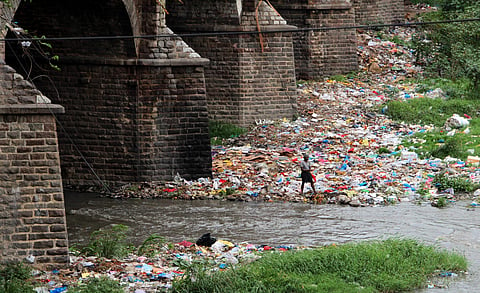

HYDERABAD: A first of its kind government report by a joint committee formed on directions from the National Green Tribunal (NGT) has raised alarm over the high presence of bacteria in the Musi river and severity of antibiotic resistance present among them due to contamination of the river with antibiotics, calling it an "imminent public health disaster, waiting to happen".
The committee which brought out the report included researchers from BITS Pilani Hyderabad, Central Pollution Control Board and Telangana State Pollution Control Board, that was directed by the NGT in April this year to conduct a hygiene survey of the Musi river and the report was submitted to NGT on Friday.
The joint committee of researchers could isolate 90 bacterial strains from 54 water samples collected from nine sampling sites on Musi river, including at Nagole, on which the researchers tested effectiveness of 14 first line antibiotics - which are commonly prescribed by doctors for a variety of infections.
Each bacterial isolate was shockingly found to be resistant to at least four antibiotics. There were some bacterial isolates that were resistant to as many as 13 antibiotics. Not a single isolate was detected that was susceptible to all the 14 antibiotics.
Some of these bacterial isolates were found to be resistant to even the a class of antibiotics called Carbapenems, which is expected to work on multidrug resistant bacteria.
The cause of worry is all these bacterial isolates were from bacteria that cause infections commonly among humans - E.coli, Klebsiella, Pseudomonas, Staphylococcus and Enterococcus. Few samples of water collected even from the Gandipet, a drinking water source were contaminated with bacteria E.coli and Klebsiella.
What is antibiotic resistance and why is it dangerous?